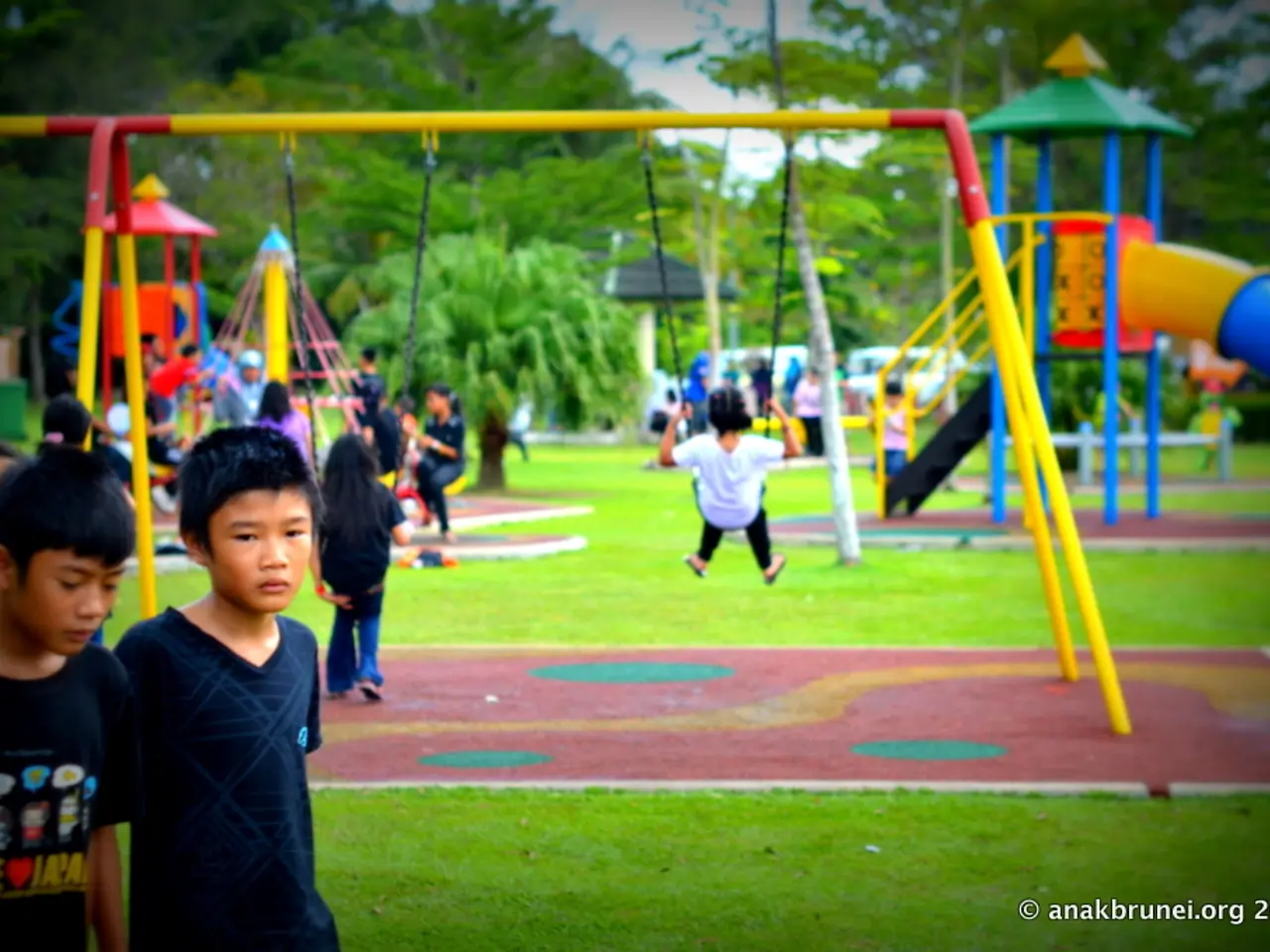Utilizing Local Parks for Sociable Education Experiences Encouraging Natural Development
Outdoor Social Learning in Local Parks: A Boon for Children's Development
Local parks are becoming more than just recreational spaces; they're transforming into educational hubs that foster children's growth in a unique and enriching way. Outdoor social learning is proving to be a powerful tool in nurturing children's social, emotional, cognitive, and physical development.
Social Skills and Emotional Development
Outdoor social learning encourages cooperative play, teamwork, communication, negotiation, and conflict resolution. Children learn to express thoughts, listen, and understand others, building communication and social competencies. Being outdoors supports self-esteem, resilience, and adaptability as children explore and take manageable risks in a safe environment.
Cognitive Development
Interaction with dynamic natural environments promotes critical thinking, problem-solving, curiosity, and creativity. Children must adapt to changing outdoor conditions, which enhances cognitive flexibility. Hands-on exploration fosters understanding of scientific concepts and encourages discovery-driven learning.
Physical and Motor Skills
Outdoor play in parks strengthens gross and fine motor skills, coordination, spatial awareness, and physical confidence through activities such as running, climbing, balancing, and digging. Physical activity outdoors supports healthy development of growing bodies.
Emotional Well-being
Time spent outdoors in green spaces helps reduce stress, improve focus, support better behavior, and promote emotional regulation. Nature's calming effect contributes to feeling centered and calm, which supports overall mental health for children.
Sense of Community and Environmental Awareness
Exploring local parks connects children to their local environment and community, fostering a sense of belonging and environmental responsibility.
In addition to these key benefits, outdoor social learning offers a myriad of engaging activities. Nature journaling circles, for instance, provide a platform for students to share observations and practice active listening. Local parks can serve as outdoor classrooms for children to learn various life skills, from simple sensory activities for preschoolers to scavenger hunts for elementary school students that require collaboration and problem-solving skills.
Environmental stewardship projects, such as maintaining butterfly gardens or organizing park cleanups, introduce children to the importance of environmental conservation. Nature-based obstacle courses, I Spy games, and field guides help children develop observation skills and increase their understanding of the natural world.
Outdoor social learning in local parks offers a rich, multidimensional environment that supports children’s social, emotional, cognitive, and physical development through natural interaction, play, and exploration.
- Apart from education, local parks can also be venues for fashion-and-beauty events, where children can learn about personal-growth and self-expression.
- Philanthropic initiatives in parks can involve partnerships with pet shelters, promoting relationships with animals and encouraging pet adoption.
- Food-and-drink workshops can teach children about different cuisines and healthy eating habits, while fostering relationships among participants.
- Home-and-garden sessions in parks can focus on urban gardening, educating children about sustainable living practices and nurturing their passion for horticulture.
- Cultural festivals and art exhibitions in parks can enhance children's understanding of diversity and global appreciation for various forms of art.
- Sports-betting tutorials, although not directly for children, can be held in parks to discuss sports statistics and strategy, appealing to sports enthusiasts.
- Sports-analysis sessions can engage children in discussing and analyzing different sports, such as football, tennis, basketball, baseball, hockey, golf, racing, mixed-martial-arts, and European leagues, fostering understanding and appreciation for various sports.
- Weather-forecasting sessions can help children learn about meteorology, enhancing their understanding of the impact of weather on various sports and outdoor activities.
- Auto-racing events can be organized in parks to educate children about racing technology, illustrating the importance of skill-training and engineering in this field.
- Learning sessions on weather-forecasting and auto-racing can even serve as springboards for career-development discussions, introducing children to potential futures in these fields.
- Shopping events focused on eco-friendly products can be held in parks, educating children about sustainable choices and encouraging responsible consumerism.
- Skills-training workshops, such as martial arts, dance, or music, can be conducted in parks, offering children new hobbies and opportunities for personal-growth.
- Sports-themed events, like mini-golf tournaments or charity base-running races, can support fundraising efforts for social causes, fostering a sense of empathy and community among children.
- Parks can host workshops on sports betting analysis, focusing on the legal, ethical, and interpersonal aspects of gambling, educating children about decision-making and risk management.
- Educational sessions on European leagues, football, basketball, baseball, hockey, and other sports can leverage technology to provide interactive and engaging learning experiences.16.collaborative art projects, such as murals or community gardens, can cultivate a strong sense of community and emotional connectivity among children.
- Incorporating educational games like I Spy, scavenger hunts, or treasure hunts into outdoor social learning can help children refine their observational skills.
- School-led programs in local parks can offer various subjects, such as English, mathematics, science, and history, integrating learning with outdoor engagement to create a unique and enriching educational experience for children.




